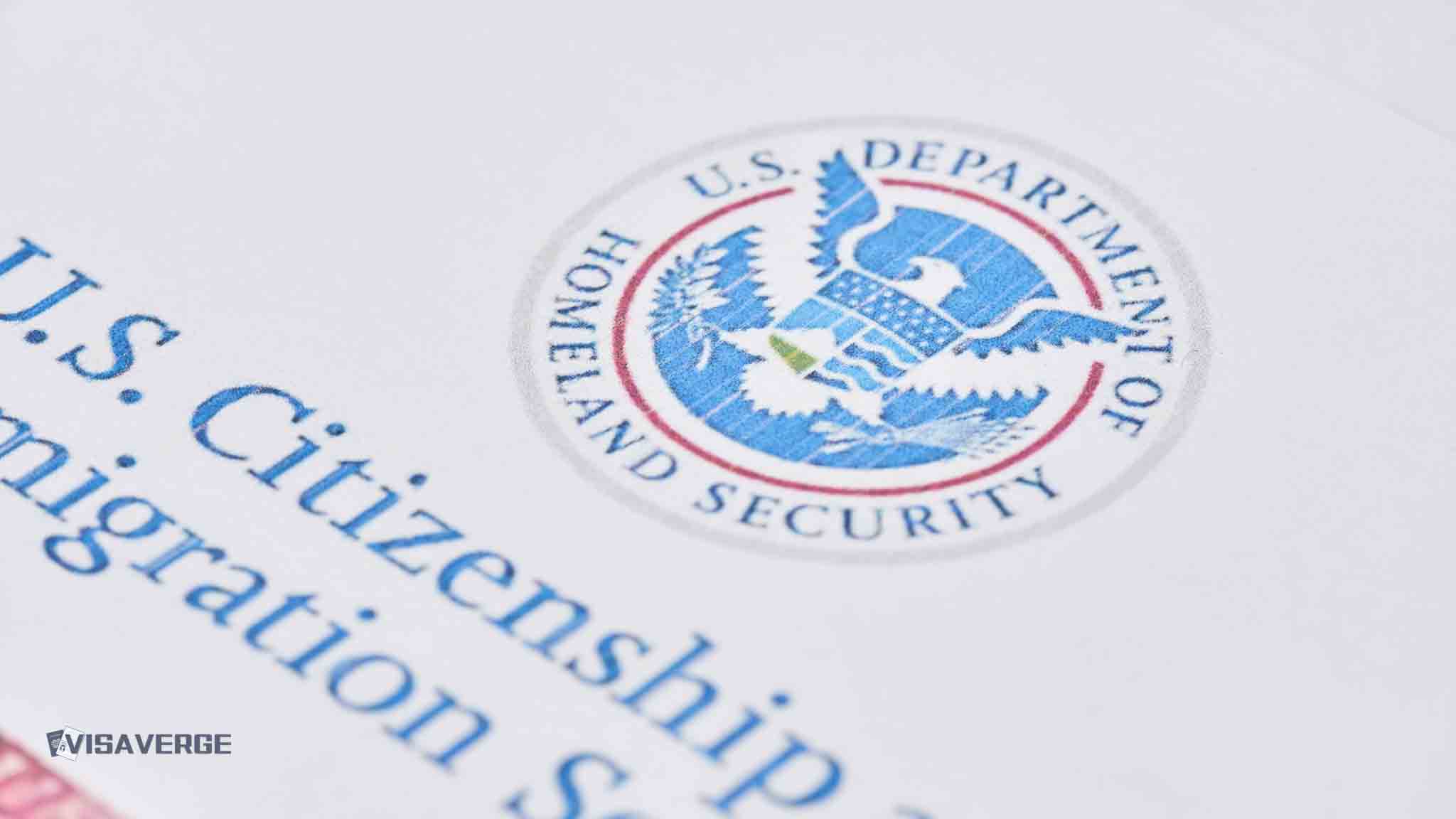Key Takeaways
• SB53 takes effect October 1, 2025, requiring law enforcement to check immigration status upon arrest.
• SB63 mandates DNA and fingerprint collection from undocumented noncitizens in custody starting June 1, 2025.
• Human smuggling is a new felony under SB53, with exceptions for medical, religious, educational, and legal transport.
Alabama Legislature Passes Two Major Immigration Laws: What SB53 and SB63 Mean for Immigrants, Law Enforcement, and Communities
In May 2025, the Alabama Legislature passed and Governor Kay Ivey signed two major immigration-related bills into law: Senate Bill 53 (SB53) and Senate Bill 63 (SB63). These new laws, set to take effect in June and October 2025, mark a significant shift in how Alabama handles immigration enforcement at the state and local levels. While lawmakers introduced nearly a dozen immigration bills this session, only these two advanced to law before the legislative session ended. The new laws have sparked strong reactions from supporters and critics alike, raising questions about their impact on immigrants, law enforcement, and the broader Alabama community.

What Are SB53 and SB63? Key Details and Effective Dates
Senate Bill 53 (SB53), often called the “show me your papers” law, was signed by Governor Ivey on May 22, 2025, and will take effect on October 1, 2025. Senate Bill 63 (SB63), which focuses on DNA and fingerprint collection from undocumented noncitizens in custody, was signed on May 12, 2025, and takes effect June 1, 2025.
SB53 requires local law enforcement officers to check the immigration status of anyone arrested and to notify federal immigration authorities if there is “reasonable suspicion” that the person is in the United States 🇺🇸 unlawfully. The law also creates a new state crime of “human smuggling,” making it a felony to knowingly transport an undocumented immigrant into Alabama, with some exceptions for health care, religious, charitable, educational, and certain legal or governmental purposes.
SB63 requires law enforcement to collect DNA and fingerprints from any undocumented noncitizen taken into custody, even if the person is only arrested and not charged or convicted. The stated goal is to speed up identification and federal processing, with Alabama officials claiming they can process DNA samples in about two and a half hours, compared to a federal backlog of up to two and a half years.
Why Did These Bills Pass? The Political and Social Context
The passage of SB53 and SB63 comes amid a broader push by Republican lawmakers in Alabama to align state policy with federal immigration crackdowns and respond to high-profile crimes involving undocumented immigrants. According to analysis by VisaVerge.com, Alabama joins at least nine other states considering similar “transportation” or “smuggling” laws in 2025.
Governor Ivey and Republican leaders argue that these laws will help protect public safety, deter illegal immigration, and support law enforcement. “We are codifying what is already happening in our jails and creating a new crime to stop human smuggling,” said Rep. Ben Robbins (R-Sylacauga), who carried SB53 in the House. Sen. Wes Kitchens (R-Arab), the bill’s sponsor, stated that the law is designed to protect both citizens and legal immigrants.
However, the broader package of immigration bills introduced this session—including proposals targeting driver’s licenses for noncitizens and enhanced penalties for crimes by undocumented immigrants—did not advance. House Speaker Nathaniel Ledbetter (R-Rainsville) praised the passage of SB53 and SB63 but acknowledged that the rest of the package would not pass this year.
How Will SB53 and SB63 Work? Step-by-Step Procedures
For Law Enforcement
SB53:
1. Arrest: When someone is arrested, officers must determine if the person is a noncitizen.
2. Reasonable Suspicion: If officers have “reasonable suspicion” that the person is in the United States 🇺🇸 unlawfully, they must ask for documentation proving lawful presence.
3. Notification: If the person cannot provide documentation, officers must notify federal immigration authorities.
4. Immigration Status Checks: These checks are required for anyone charged with certain crimes in any Alabama jail.
SB63:
1. Custody: If an undocumented noncitizen is taken into custody, law enforcement must collect DNA and fingerprints.
2. No Conviction Needed: DNA and fingerprints are collected even if the person is only arrested, not charged or convicted.
3. Processing: Alabama claims to process DNA samples much faster than federal authorities, aiming to speed up identification and possible deportation.
For Individuals
- Carry Documentation: Noncitizens must carry documentation proving lawful presence to avoid being detained and referred to federal authorities.
- Transportation Risks: Anyone who knowingly transports an undocumented immigrant into Alabama risks felony charges, unless they fall under specific exemptions for health care, religious, charitable, educational, or certain legal/governmental reasons.
What Are the Main Provisions of SB53 and SB63?
Senate Bill 53 (SB53)
- Immigration Status Checks: Local law enforcement must verify the immigration status of anyone arrested.
- Notification to Federal Authorities: Officers must notify federal immigration authorities if there is “reasonable suspicion” someone is unlawfully present and they cannot show proper documentation.
- Human Smuggling Crime: Knowingly transporting an undocumented immigrant into Alabama is now a Class C felony. There are exemptions for health care, religious, charitable, educational, and some legal/governmental purposes.
- Applies to Jails: Immigration status checks are required for anyone charged with certain crimes in any Alabama jail.
Senate Bill 63 (SB63)
- DNA and Fingerprint Collection: Law enforcement must collect DNA and fingerprints from any undocumented noncitizen in custody, regardless of whether they are charged or convicted.
- Faster Processing: Alabama claims a two-and-a-half-hour turnaround for DNA processing, compared to a federal backlog of up to two and a half years.
Who Supports and Who Opposes These Laws?
Supporters
- Governor Kay Ivey: Signed both bills into law, supporting a crackdown on illegal immigration.
- Republican Lawmakers: Argue the laws align Alabama with federal immigration enforcement, deter illegal immigration, and protect public safety.
- Sen. Wes Kitchens (R-Arab): Says the law protects both citizens and legal immigrants.
- Rep. Ben Robbins (R-Sylacauga): Emphasizes that SB53 codifies existing jail practices and creates a new crime to stop human smuggling.
Opponents
- Democratic Lawmakers: Rep. Phillip Ensler argues SB53 duplicates federal law and is overly broad and cruel.
- Civil Rights and Immigrant Advocacy Groups: Organizations like the Alabama Coalition for Immigrant Justice (ACIJ), ACLU of Alabama, and Alabama Immigrant Advocacy Coalition strongly oppose both laws. They warn of increased racial profiling, privacy violations, and harm to families and communities.
- Allison Hamilton (ACIJ): Criticizes SB53 as racially motivated and unconstitutional, warning of increased profiling and family separation.
What Are the Practical Effects and Policy Implications?
Increased Law Enforcement Involvement
Local police and sheriffs will now play a bigger role in immigration enforcement. Officers must check immigration status and notify federal authorities, which could lead to more detentions and deportations for undocumented individuals.
Criminalization of Transportation
Family members, friends, and community members who transport undocumented immigrants risk felony charges, unless they qualify for narrow exemptions. This could discourage people from helping others get to medical appointments, school, or other essential services.
Mandatory DNA Collection
SB63 requires DNA and fingerprint collection from any undocumented noncitizen in custody, even if the person is only arrested and not convicted. Critics say this raises serious privacy and civil liberties concerns.
Potential for Racial Profiling
Opponents warn that the “reasonable suspicion” standard in SB53 could lead to racial profiling based on appearance, language, or perceived ethnicity. This could make immigrants and people of color more likely to be stopped, questioned, or detained.
Barriers to Healthcare and Legal Services
While there are exemptions for some medical and legal transport, advocates argue these are vague and may not protect everyone. Some people may avoid seeking health care or legal help out of fear of arrest or prosecution.
Isolation of Immigrant Communities
Fear of arrest or prosecution may discourage immigrants from reporting crimes, participating in community life, or accessing essential services. This could make communities less safe and increase feelings of isolation.
How Did the Legislature Vote?
- SB53 passed the Alabama House 76-7, with 17 abstentions.
- SB63 was signed into law on May 12, 2025; SB53 was signed on May 22, 2025.
How Do These Laws Compare to Other States?
Alabama joins at least nine other states considering similar “transportation” or “smuggling” laws in 2025. Some states, like Florida, have passed laws that have faced federal court challenges for conflicting with federal immigration authority. Legal experts note that the likelihood of enforcement may increase if there is a change in federal administration, but lawsuits are expected.
What Is the Background? Alabama’s History with Immigration Laws
Alabama has a history of strict immigration laws. In 2011, the state passed HB56, which was one of the toughest immigration laws in the country at the time. Much of HB56 was later blocked by federal courts for overstepping state authority and conflicting with federal law.
The 2025 legislative push was part of a broader Republican agenda to align with federal crackdowns and respond to high-profile crimes involving undocumented immigrants. Despite nearly a dozen immigration-related bills introduced this session, only SB53 and SB63 passed, with others stalling amid opposition and time constraints.
What Happens Next? Legal Challenges and Future Legislation
Legal Challenges Expected
Civil rights and immigrant advocacy groups have already signaled plans to challenge the new laws in court, citing constitutional and civil rights concerns. Similar laws in other states have been blocked by federal courts, and legal battles over state versus federal authority in immigration enforcement are likely to continue.
Implementation Timeline
- SB63 (DNA and fingerprint collection): Takes effect June 1, 2025.
- SB53 (“show me your papers” and human smuggling crime): Takes effect October 1, 2025.
Potential for More Legislation
Other immigration-related bills remain in committee and could be revived in future legislative sessions. The debate over immigration enforcement in Alabama is far from over.
Federal-State Tensions
Ongoing legal battles over state versus federal authority in immigration enforcement are expected, especially if similar laws in other states are struck down or upheld. The outcome of these cases could shape how Alabama and other states enforce immigration laws in the future.
What Should Immigrants and Community Members Do Now?
- Carry Documentation: Noncitizens in Alabama should carry documentation proving lawful presence at all times to avoid detention and referral to federal authorities.
- Know Your Rights: Immigrants and their families should learn about their rights during police encounters and seek legal advice if needed.
- Stay Informed: Community members should stay updated on the status of these laws and any legal challenges that may affect their enforcement.
- Seek Help: Organizations like the Alabama Coalition for Immigrant Justice, ACLU of Alabama, and Alabama Immigrant Advocacy Coalition offer resources and support for immigrants and their families.
For the full text of these bills and updates on their status, visit the official Alabama Legislature website.
Summary Table: Key Immigration Bills Passed in Alabama, 2025
| Bill | Main Provisions | Effective Date | Status |
|---|---|---|---|
| SB53 | Mandates immigration status checks, creates human smuggling crime, “show me your papers” law | October 1, 2025 | Signed into law |
| SB63 | Mandatory DNA/fingerprint collection for undocumented noncitizens in custody | June 1, 2025 | Signed into law |
Official Resources and Contact Information
- Alabama Legislature: legiscan.com/AL
- Governor’s Office: governor.alabama.gov
- Alabama Immigrant Advocacy Coalition: [email protected]
- Alabama Coalition for Immigrant Justice: acij.org
- ACLU of Alabama: aclualabama.org
Conclusion: What’s at Stake for Alabama?
The passage of SB53 and SB63 by the Alabama Legislature marks a new era in state-level immigration enforcement. Supporters believe these laws will make Alabama safer and help enforce federal immigration rules. Critics warn of racial profiling, family separations, and harm to public health and safety. As these laws take effect and legal challenges unfold, their impact on Alabama’s immigrant communities, law enforcement, and the state’s reputation will become clearer.
Analysis from VisaVerge.com suggests that Alabama’s approach reflects a growing trend among states to take immigration enforcement into their own hands, even as federal courts continue to define the limits of state authority. For now, immigrants, advocates, and law enforcement officials across Alabama are preparing for the changes—and the challenges—that SB53 and SB63 will bring.
Learn Today
Senate Bill 53 (SB53) → A 2025 Alabama law requiring immigration status checks and creating a felony for human smuggling.
Senate Bill 63 (SB63) → A law mandating DNA and fingerprint collection from undocumented noncitizens in custody.
Reasonable Suspicion → A legal standard requiring some facts to justify checking a person’s immigration status.
Human Smuggling → The crime of knowingly transporting undocumented immigrants into Alabama under SB53.
Federal Immigration Authorities → U.S. government agencies responsible for immigration enforcement and deportation.
This Article in a Nutshell
Alabama’s Legislature passed SB53 and SB63 in May 2025, intensifying immigration enforcement with mandatory status checks and DNA collection, sparking debate on racial profiling and community impact.
— By VisaVerge.com








